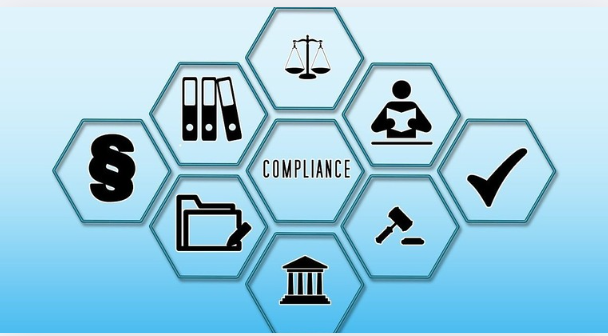Among the various components of this complex process, claim tracking stands out as a crucial element. In this article, we delve into the importance of claim tracking in medical billing, shedding light on its role in enhancing efficiency, reducing errors, and ultimately improving patient care.

Why Claim Tracking Matters?
1. Swift Identification of Issues:
Claim tracking systems play a pivotal role in identifying issues in the early stages of the billing process. From data entry errors to missing information, tracking allows healthcare providers to address and rectify issues promptly, preventing delays in reimbursement. One key aspect of swift issue identification is the ability to catch errors early in the billing process. In traditional billing systems, errors often go unnoticed until they reach advanced stages, leading to delays in reimbursement. Claim tracking systems, however, act as vigilant watchdogs, continuously monitoring each step of the billing journey. This real-time oversight enables the immediate detection of issues such as data entry errors, missing information, or discrepancies that might hinder the claim approval process.
Timely issue identification is a linchpin in preventing claim denials. By swiftly pinpointing potential problems, healthcare providers can take corrective actions before claims are submitted to insurance companies. This not only minimizes the chances of denials but also expedites the reimbursement process, maintaining a steady cash flow for healthcare facilities.
2. Enhanced Transparency:

Transparency is key in the healthcare industry. Claim tracking provides a transparent view of the entire billing cycle, enabling healthcare providers to monitor the status of claims in real time. This transparency facilitates better communication between healthcare facilities and insurance providers, reducing the likelihood of disputes and delays.
Real-Time Monitoring:
Claim tracking systems provide healthcare providers with a bird’s eye view of the entire billing process in real-time. This instantaneous insight allows for continuous monitoring of the status of claims, from submission to reimbursement. This transparency ensures that healthcare providers are well-informed about the progress of each claim, reducing uncertainties and facilitating better decision-making.
Status Visibility for Stakeholders:
Enhanced transparency extends beyond the confines of the healthcare provider’s office. Patients and other stakeholders also benefit from improved visibility into the billing process. With the right systems in place, patients can track the progress of their claims, understand billing details, and anticipate out-of-pocket expenses. This transparency fosters trust and confidence in the healthcare provider, contributing to a positive patient experience.
Reduced Disputes and Delays:
Transparent communication facilitated by claim tracking systems helps mitigate potential disputes between healthcare providers and insurance companies. Any discrepancies or issues can be identified early, allowing for prompt resolution. This reduction in disputes leads to faster claim processing, minimizing delays in reimbursement and ensuring a more consistent cash flow for healthcare organizations.
Improved Accountability:
Transparency creates a culture of accountability within healthcare organizations. With clear visibility into the billing process, each stakeholder involved – from billing staff to administrators – can be held accountable for their roles. This not only streamlines internal processes but also contributes to a more efficient and accountable healthcare ecosystem.
3. Reduced Denials and Rejections:

By closely monitoring claims, healthcare providers can identify patterns leading to denials or rejections. This proactive approach enables them to implement necessary changes to reduce the likelihood of future issues. Claim tracking contributes to a decrease in claim denials, ensuring a smoother and more efficient revenue cycle.
Early Detection of Errors:
Claim tracking systems act as vigilant gatekeepers, meticulously scanning claims for potential errors before submission to insurance providers. This early detection allows healthcare staff to address issues such as incomplete information, coding errors, or documentation discrepancies promptly. By resolving these issues at the source, the likelihood of denials and rejections is significantly reduced.
Adherence to Coding Standards:
Claim tracking systems often incorporate built-in coding validation mechanisms that ensure adherence to industry standards and regulations. This feature helps prevent common errors related to incorrect codes, which are a frequent cause of claim denials. By promoting accurate coding practices, claim tracking systems contribute to a reduction in rejection rates.
Continuous Process Improvement:
The data generated by claim tracking systems offer valuable insights into the patterns and trends associated with claim denials. By analyzing this information, healthcare providers can identify root causes and implement strategic improvements. This continuous process of refinement minimizes the recurrence of issues, leading to a sustained reduction in denials and rejections over time.
Streamlined Documentation:
Comprehensive and accurate documentation is crucial in medical billing. Claim tracking systems facilitate the creation and maintenance of detailed and error-free documentation. This, in turn, minimizes the chances of rejections due to insufficient or inaccurate information, ensuring that claims are submitted with the highest level of completeness.
4. Optimized Revenue Cycle Management:

Efficient revenue cycle management is vital for the financial stability of healthcare organizations. Claim tracking systems help optimize the revenue cycle by streamlining the billing process, reducing errors, and ensuring timely reimbursements. This, in turn, allows healthcare providers to focus on delivering quality patient care.
Efficient Claim Submission:
Claim tracking systems streamline the claim submission process by automating and optimizing data entry. This efficiency reduces the likelihood of errors, ensuring that claims are accurate and complete before submission. By facilitating a smooth initial submission, healthcare providers set the stage for a more efficient revenue cycle.
Real-Time Monitoring and Analytics:
Claim tracking systems provide real-time visibility into the status of claims throughout the entire billing lifecycle. This visibility allows healthcare providers to monitor key performance indicators, identify bottlenecks, and analyze trends. The data-driven insights gleaned from claim tracking contribute to informed decision-making and continuous process improvement.
Proactive Issue Resolution:
By detecting issues early in the billing process, claim tracking systems enable healthcare providers to address and rectify potential problems promptly. This proactive approach minimizes the chances of claim denials and rejections, preventing disruptions in the revenue cycle. Swift issue resolution ensures a steady cash flow for healthcare organizations.
Reduction in Days in Accounts Receivable (DAR):
Claim tracking systems contribute to a reduction in the Days in Accounts Receivable by expediting the billing and reimbursement process. By minimizing delays in claim processing, healthcare providers can accelerate cash flow, optimize working capital, and improve overall financial performance.
5. Improved Patient Satisfaction:
Claim tracking indirectly influences patient satisfaction by contributing to a more transparent and error-free billing process. When patients experience smooth and hassle-free billing, it positively impacts their overall perception of the healthcare provider, fostering trust and loyalty.
Transparent Billing Information:
Claim tracking systems provide patients with greater transparency regarding their billing information. Patients can easily access details about the status of their claims, understand the charges, and review the payment process. This transparency fosters trust and empowers patients with the information they need, leading to a more positive perception of the healthcare provider.
Minimized Billing Errors:
Claim tracking systems play a crucial role in reducing billing errors. Accurate and transparent billing practices prevent overcharges, undercharges, or other discrepancies that could lead to confusion and frustration for patients. When patients receive clear and error-free bills, it contributes to a smoother billing experience and higher satisfaction levels.
Prompt Issue Resolution:
In cases where billing discrepancies do occur, claim tracking systems enable healthcare providers to identify and address issues promptly. Swift resolution of billing concerns demonstrates a commitment to customer service and enhances the patient-provider relationship. Patients appreciate responsiveness and efficiency in addressing their concerns, contributing to an overall positive experience.
Efficient Handling of Insurance Claims:
Claim tracking systems streamline the handling of insurance claims, reducing the likelihood of claim denials or delays. When patients see that their insurance claims are processed efficiently and accurately, it adds to their confidence in the healthcare provider. Smooth interactions with insurance processes contribute to a positive overall perception of the healthcare experience.
6. Adaptability to Regulatory Changes:
The healthcare industry is subject to frequent regulatory changes. Claim tracking systems are designed to adapt to these changes seamlessly. This adaptability ensures that healthcare providers remain compliant with evolving regulations, avoiding potential penalties and maintaining the integrity of their billing practices.
Real-Time Updates and Compliance Checks:
Claim tracking systems are equipped to provide real-time updates on regulatory changes within the healthcare industry. These systems can automatically incorporate the latest coding updates, billing guidelines, and other regulatory requirements. This ensures that healthcare providers are continuously aligned with the most current standards, minimizing the risk of non-compliance.
Automatic Code and Billing Rule Updates:
As regulatory bodies introduce new codes or modify existing ones, claim tracking systems can automatically update their databases to reflect these changes. This feature is particularly valuable in maintaining accurate and compliant coding practices, which are essential for reimbursement and adherence to regulatory guidelines.
Audit Trails and Documentation:
Claim tracking systems often include robust audit trail features that document changes made to claims and billing information. This documentation is invaluable during audits or when demonstrating compliance. It ensures that healthcare providers have a clear record of their adherence to regulatory requirements, reducing the risk of penalties or legal issues.
Customization for Specific Regulations:
Different regions or specialties within healthcare may have specific regulations that require unique considerations in billing. Claim tracking systems are designed to be customizable to accommodate these specific requirements. Whether it involves unique billing codes, modifiers, or documentation standards, the adaptability of claim tracking systems ensures that healthcare providers can tailor their processes to comply with regional or specialty-specific regulations.
Recent Comments